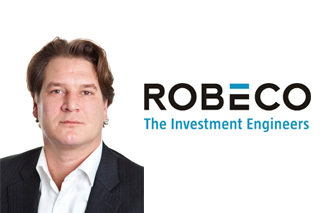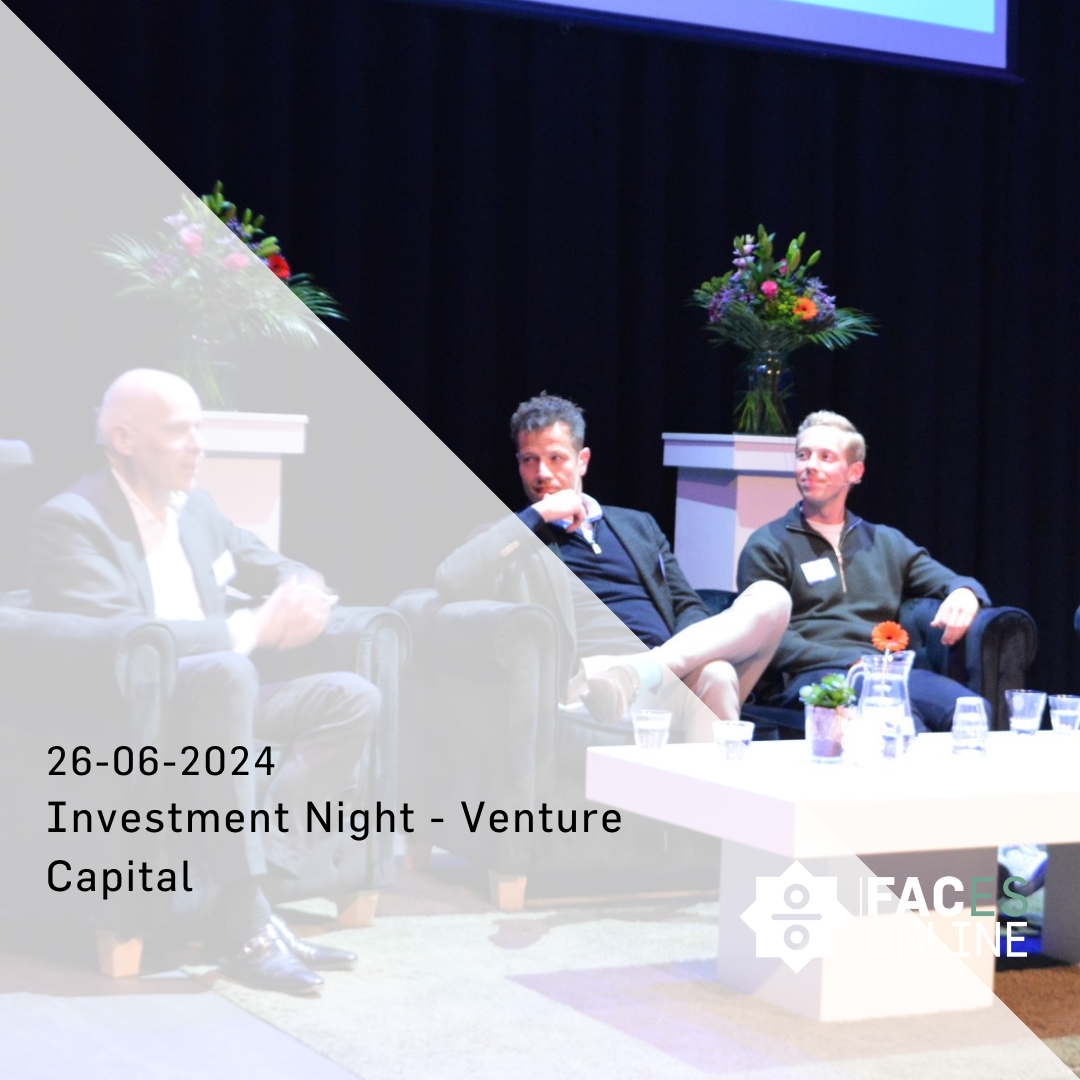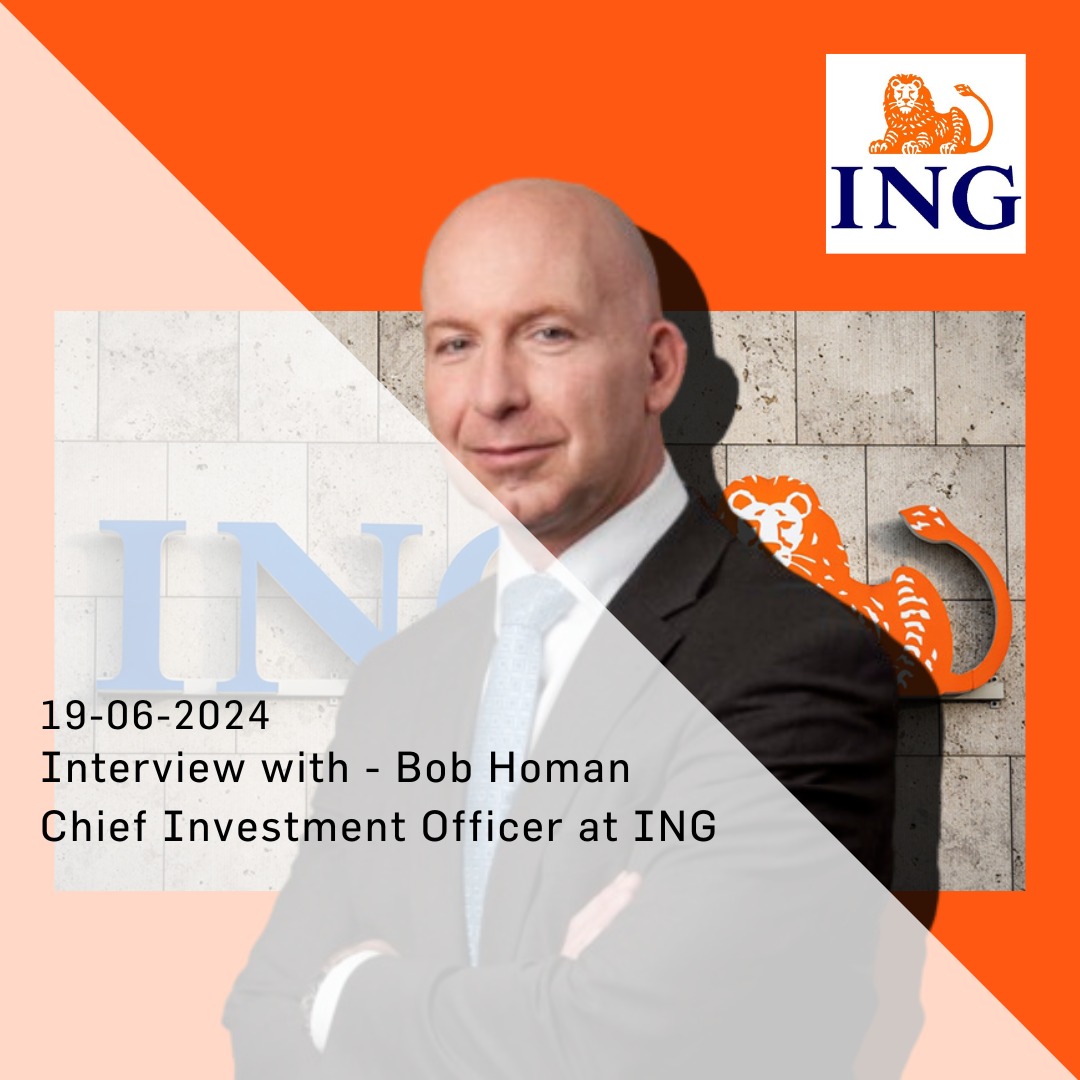Preparation for the eleventh edition of Investment Night began in early September. When we as a committee met for the first time at the beginning of


Mike and Jeroen spoke with Mr. Hoozemans, Director at Robeco Asset Management and specialist in the energy sector. He talks about the current and future developments in the energy sector and how ESG is becoming increasingly important for companies and investors. The interview is especially focused on the cause and effects of the recent drop in oil price.
Could you tell us something about yourself and your career?
My name is Dirk Hoozemans and I’m 37 years old. I am part of the Robeco Global Equity team and the team invests in developed markets worldwide. I studied econometrics at Tilburg University and after my graduation, I started as a Junior Portfolio Manager at Robeco in Rotterdam. The first two years I was in the Junior Program, where I did several internships learning the ins and outs of valuation and investment. After these two years I started in the Rotterdam-based North-American equities team. When Robeco switched from region-based investment teams to sector-based investing, I started looking at the energy and utilities sectors. Currently I am the specialist in the field of oil, gas and alternative energy within the Global Equity team.
What does a normal working day look like?
First, I take my daily train, commuting from Utrecht to Rotterdam. On the way to Rotterdam I read my incoming emails from colleagues, companies, analysts and economists. Every day is different. Basically, I analyze energy and utility companies with the aim of identifying outperformers in the space. Herein I rely on my own analysis and modelling but I am also in close contact with sell-side analyst from large brokers such as Morgan Stanley and Merrill Lynch. I also meet with analysts and companies who come to the Robeco office in Rotterdam on a regular basis to discuss investment ideas and developments in the sectors I cover. Management teams will meet with investors to discuss their growth strategy and the outlook for profits, cash flows, share buybacks and dividends. Besides meeting people in Rotterdam I often attend industry conferences and from time to time I visit oil companies in for example Houston to discuss the latest developments in the industry and seek investment candidates for the Robeco portfolio.
Events such as the recent drop of the oil price or the Swiss central bank suddenly announcing it will no longer hold the Swiss Franc at a fixed exchange rate with the Euro, bring a lot of volatility but also make every working day a different (and interesting) one.
You also worked in the Boston and Hong Kong branches of Robeco. Are there many differences in your daily tasks and the business culture as compared to Robeco Rotterdam?
My daily tasks are basically the same but from a slightly different angle. Our subsidiary in Boston, for example, takes more of a value-investing approach. Our Hong Kong office on the other hand focuses on the fast-growing Asian markets; quite a different approach.
In our Rotterdam office, we run global equity products: here we invest in global emerging markets and global developed markets but we also run our more thematic trends investing portfolios and our quantitative portfolios, based on econometric models, from Rotterdam.
You hold the title of Chartered Financial Analyst. Does this give you any advantages within your daily tasks?
Personally, I appreciated the CFA program greatly. As an econometrician, I was mainly trained in (quantitative) finance, modelling and statistics, but not so much in reading and interpreting balance sheet data. The CFA program was useful in getting more familiar with accounting, but also with alternative investments and fixed income instruments – which as an equity investor you obviously see little of on a daily basis.
The CFA curriculum takes three years and is basically a sort of compressed master degree; some of it is repetition, some of it is new but it definitely broadens and deepens your knowledge and understanding of financial markets. Of course, the program is updated often, bringing old topics up to date and introducing new ones. Nowadays, at Robeco juniors are required to have passed CFA level 1 and 2 upon leaving the two-year junior trainee program.
What is your opinion about OPECs decision to keep oil extraction at a steady level?
I had expected this decision, but it still brought about a huge shock in commodity and equity markets. At the moment, there are three things happening. Firstly, non-OPEC oil extraction is growing at a rapid rate; especially unconventional or shale oil production in the United States is showing unprecedented growth. Secondly, global GDP growth is lackluster as Europe is facing problems while growth in China not at the high levels it was last decade. And finally, the dollar has been very strong, which often implies that investors sell dollar-denominated commodities.
Many American oil producers had expected that OPEC would lower production quota, but by keeping production steady and focusing on market share, the oil market is now in oversupply and hence prices have dropped significantly. Note that OPEC extracts oil at a cost of some ten dollars per barrel, while in the US oil is produced at a cost of between fifty and sixty dollar per barrel. Consequently, decreasing oil prices will first hit US producers, who will have to slow down drilling to bring supply and demand back in balance in the oil market.
How does the drop in the oil price influence your daily work?
When the oil price decreases, future cash flows will be lower causing stocks to decrease as well. For us, as investors, it is mainly our task to focus on high quality companies. These are mostly companies producing at a low break-even point. You will notice shifts in the value chain of your investment portfolio. We will therefore invest less in suppliers, while investing more in larger integrated companies. On the other hand, this low oil price and its consequences will be an important point of discussion within our teams. One of the possible consequences is that consumers will have more money left, implying investors must think about having more exposure within the consumer industry or within the transport industry.
What are your expectations for the oil price in the upcoming months?
Marginal costs are very important: these are the capital costs of doing new investments. For example, oil extraction companies in Canada need an oil price of about eighty to hundred dollars a barrel to justify new investments. Hence low oil prices will lead to underinvestment in new oil projects and exploration for new oil reservoirs, which in a few years’ time will result in less new oil supply hitting the market. With a recovering economy and less investments done to satisfy the increasing demand, a gap between demand and supply will be created causing an upward shift in the oil price.
In the short run, we expect weak oil prices in the first quarter, likely bottoming in the second quarter. When US producers cut spending on drilling new wells, the oil price will slowly move upwards. A cautious medium-term estimate would be a price ranging from sixty to seventy dollars a barrel persisting for a longer period – a price preventing American oil producers to massively ramp up production but instead focusing on their best and most profitable projects.
What are the recent and future developments in the energy industry?
The recent developments are obviously mostly connected to the drop in the oil price. Within the energy industry, there is an evolution going on where less coal and oil and more natural gas is used; coal, which is considered a “dirty” fuels need to leave the energy mix and penetration of gas is very important, also in many developing economies. In the US, due to large quantities of cheap natural gas substituting coal, substitution has seen better results than in Europe, where government intervention has not helped.
The costs of alternative energy such as wind and solar power has decreased substantially in recent years, causing green energy and energy efficiency to be increasing in importance over the long-term period. However, a negative consequence of the drop in the oil price is that some alternative energy developments are less competitive and will be slowed down.
Environmental, Social en Governance (ESG) is growing in importance within the energy sector. What are the consequences for investors?
First of all, ESG is growing in importance in general, not only within the energy sector. Within the energy sector, especially the environmental aspect is important. Robeco has a subsidiary called RobecoSAM (SAM stands for Sustainable Asset Management) in Zürich, who together with Dow Jones construct the Dow Jones Sustainability Index (DJSI). With SAM, Robeco is working on implementing ESG in our investment processes. We evaluate company’s ESG policies and their effect on company value drivers, which are revenue growth, profit margins and the level of investments necessary to sustain and grow the business. This way ESG will have its effects on the valuation of stocks, and will grow in importance within asset management. Robeco clearly has an edge in this because we started quite early and actively collaborate with RobecoSAM.
I always say, “ESG starts with a G”: governance is the most important aspect of socially responsible investing, because you need a management team that understand and support ESG and also implement it in company policies.
Given your current position, what would you advice current and future Finance students?
I advise every student interested in investments to start investing during your studies. If only by means of a spreadsheet and a paper portfolio. Investing is being smart and doing analyses, while it is also lots of psychology and sentiment. Get used to being in the market and develop a sense for it. Besides that, it is important to broaden your horizon. Don’t be solely focused on following Finance courses; realize that lots of other things can influence the stock market as well. Go against the flow, dare to buy when everybody sells and sell when everybody buys. Be curious, be critical – not cynical.






















